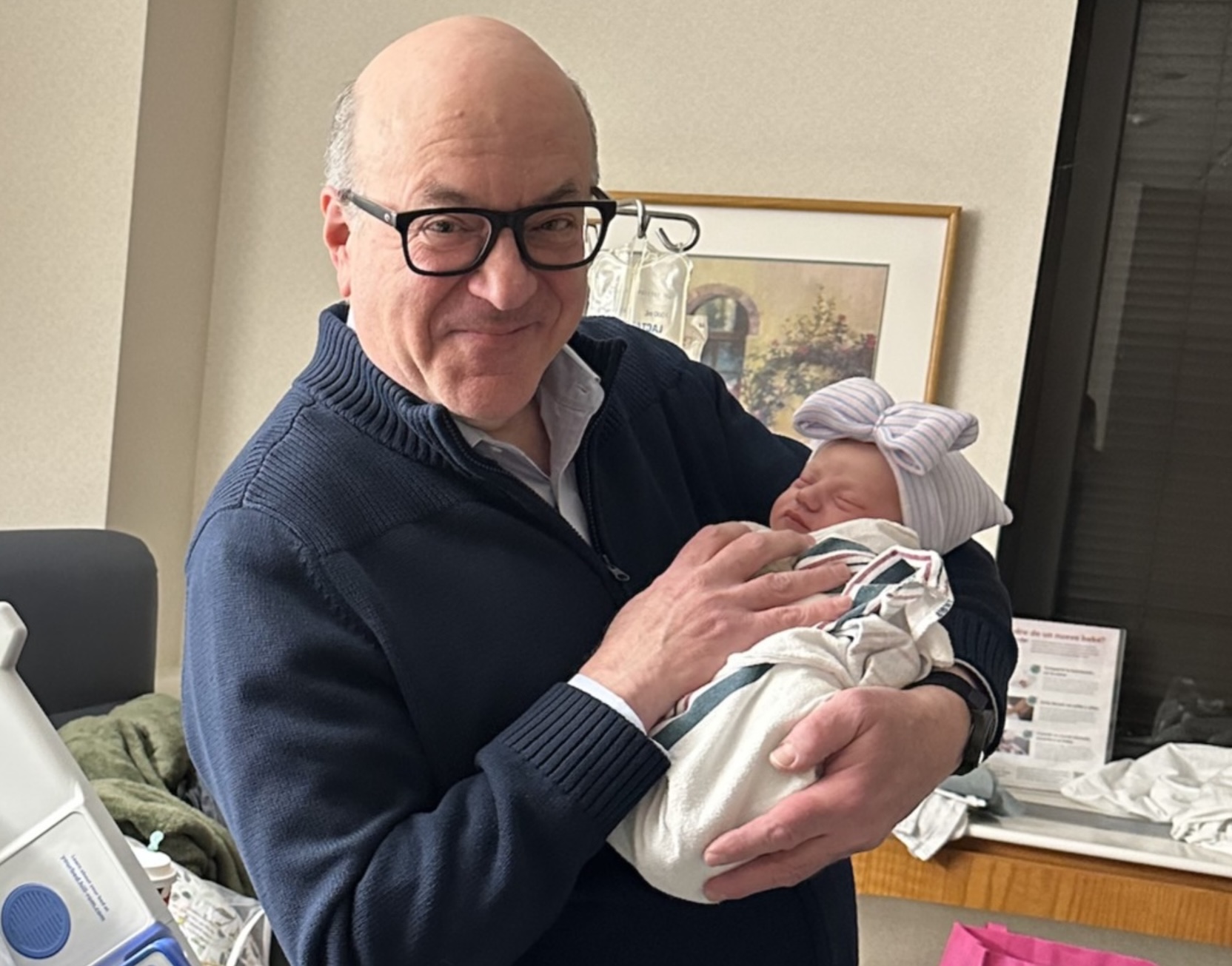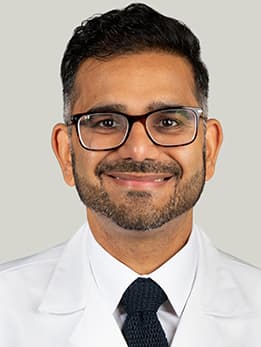Two prostate cancer patients. Two different focal therapies. Two excellent outcomes.

Mitchell Sheinkop is cancer-free and back on his bicycle after receiving focal therapy treatments. (Mark Black)
Retired Chicago media columnist Robert Feder called it “a gift beyond measure.”
Orthopaedic surgeon Mitchell Sheinkop, MD, said it was “a textbook case of excellence.”
They’re referring to the focal therapy treatments for prostate cancer they had at the University of Chicago Medicine.
These new minimally invasive treatments target and destroy specific cancer tumors in the prostate.
UChicago Medicine is the only hospital in Chicago — and one of just a handful nationwide — to offer the full spectrum of focal therapies for prostate cancer.
They’re a significant advancement from just a few years ago, when most prostate cancer was treated with removal or radiation of the entire prostate gland, often causing urinary incontinence or erectile dysfunction.
With focal therapies, those side effects rarely happen. The procedures are less invasive and usually don’t require a hospital stay. Recovery times can be as short as a few days.
Sheinkop, an avid cyclist, was back on his bike within weeks of his 2024 treatment. Feder’s recovery took longer, but today he feels great.
“I feel better now than I ever remember feeling,” said Feder, 69, a widower who is engaged to marry his childhood sweetheart and recently became a grandfather. “To look forward to more good years? That’s a gift beyond measure.”
HIFU ultrasound therapy preserves prostate, surrounding tissue
After being diagnosed with prostate cancer at a different hospital in 2023, Sheinkop’s doctors told him his only treatment option was 30 days of radiation.
Fearing that could expose him to short- and long-term complications, Sheinkop wanted a second opinion.
A family member who is a urologist recommended UChicago Medicine because of its clinical and research expertise in prostate cancer. Sheinkop met with former UChicago Medicine urologic oncologist Scott Eggener, MD, who referred him to Abinhav Sidana, MBBS, one of the country’s leading authorities on focal therapies.
They told Sheinkop that he did, in fact, have other options.
“The doctors sat down with me, showed me respect, laid down the facts and the percentages and let me make the decision,” Sheinkop said. “They took no shortcuts and were in no hurry. It was a textbook case of excellence.”
Sheinkop opted for high-intensity focused ultrasound (HIFU), a type of focal therapy that uses focused sound waves to heat and destroy cancer cells in the prostate without harming surrounding healthy tissue.
While he was hesitant to try a new treatment at first, Sheinkop now proudly shares his success story at his monthly breakfast gatherings with friends, where he jokes that prostate problems are a regular topic of conversation.
“I became a hero to them after I went through the procedure with Dr. Sidana and had no complications, prompt rehabilitation, no pain, no interference with my professional or social life, and I got back into a full activity schedule in seven days,” said Sheinkop, 84, a Lincoln Park resident.

Sheinkop — a retired leader and professor in joint replacement surgery who remains involved in the emerging discipline of regenerative medicine — didn’t decide to have HIFU based on what he read online. Rather, he put his full trust in the UChicago Medicine doctors who studied these therapies, had their research published and are well-respected in the field.
“The only way you’re going to know what’s best for you is to see the experts,” Sheinkop said. “And in my opinion, the experts are at the University of Chicago.”
Electric pulses kill hard-to-reach cancer cells
Because cancer runs in his family, Feder regularly had prostate-specific antigen (PSA) blood tests that help screen for prostate cancer.
In early 2023, when his prostate became enlarged and he experienced more frequent urges to urinate, his PSA flagged a problem. Further testing found a large tumor in his prostate. A biopsy confirmed it was cancer.
Feder faced the likelihood he’d need to have his prostate removed or radiated, but his longtime primary care doctor, Robert Noven, MD, strongly urged him to go to UChicago Medicine to see if he'd be eligible for focal therapy.
Feder met with Sidana and UChicago Medicine urology section chief Arieh L. Shalhav, MD, who told him he was eligible for focal therapy because his cancer was intermediate-risk and contained to one part of his prostate.
“UChicago was offering me a path that seemed like a miracle,” Feder said.

In December 2023, Feder had irreversible electroporation (IRE). The precise, non-thermal focal therapy treatment is ideal for hard-to-reach areas of the prostate. It uses electrical pulses to kill cancer cells while preserving nearby nerves and blood vessels.
The procedure went smoothly, but he needed to have a catheter for 10 days, which caused a lot of discomfort. The medication to relieve that discomfort caused side effects, including dry mouth and constipation. But after a couple of weeks, Feder turned a corner and quickly started feeling better.
Today, Feder and Sheinkop are both cancer-free, but they still must have regular PSAs and CT scans to make sure their cancer hasn’t returned.
Feder, who retired in 2022 after 42 years as a media critic and blogger, is eager to spread the word about these new focal therapy treatments, given the recent prostate cancer deaths of two high-profile Chicagoans and friends: Chicago Cubs Hall of Famer Ryne Sandberg, 65, and WXRT-FM 93.1 disc jockey Lin Brehmer, 69.
“I’m so grateful that I can live my best life now, and it’s because of what Dr. Sidana and the University of Chicago did for me,” Feder said.

Abhinav Sidana, MBBS, MPH
Dr. Sidana is a urologic oncologist who specializes in prostate and kidney cancer, performing both robotic and open surgery for patients diagnosed with urologic cancers.

UChicago Medicine Comprehensive Cancer Center
UChicago Medicine is designated as a Comprehensive Cancer Center by the National Cancer Institute, the most prestigious recognition possible for a cancer institution. We have more than 200 physicians and scientists dedicated to defeating cancer.
Learn More About the Comprehensive Cancer Center